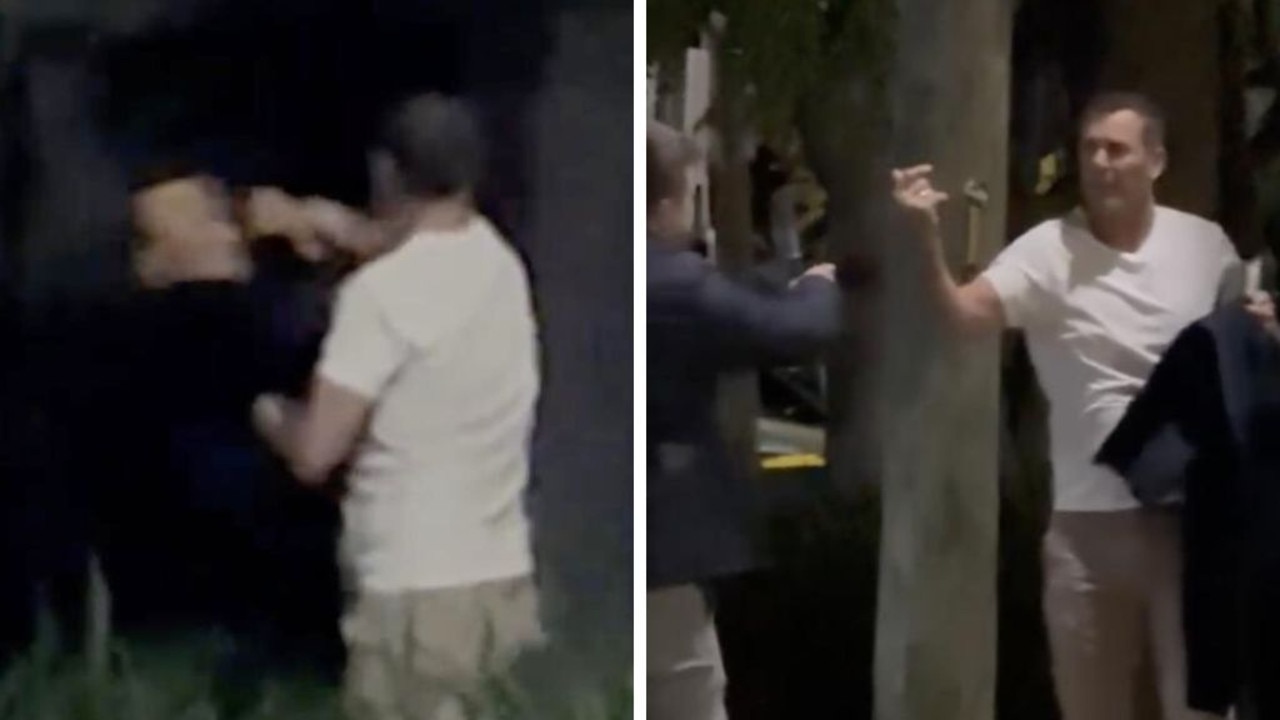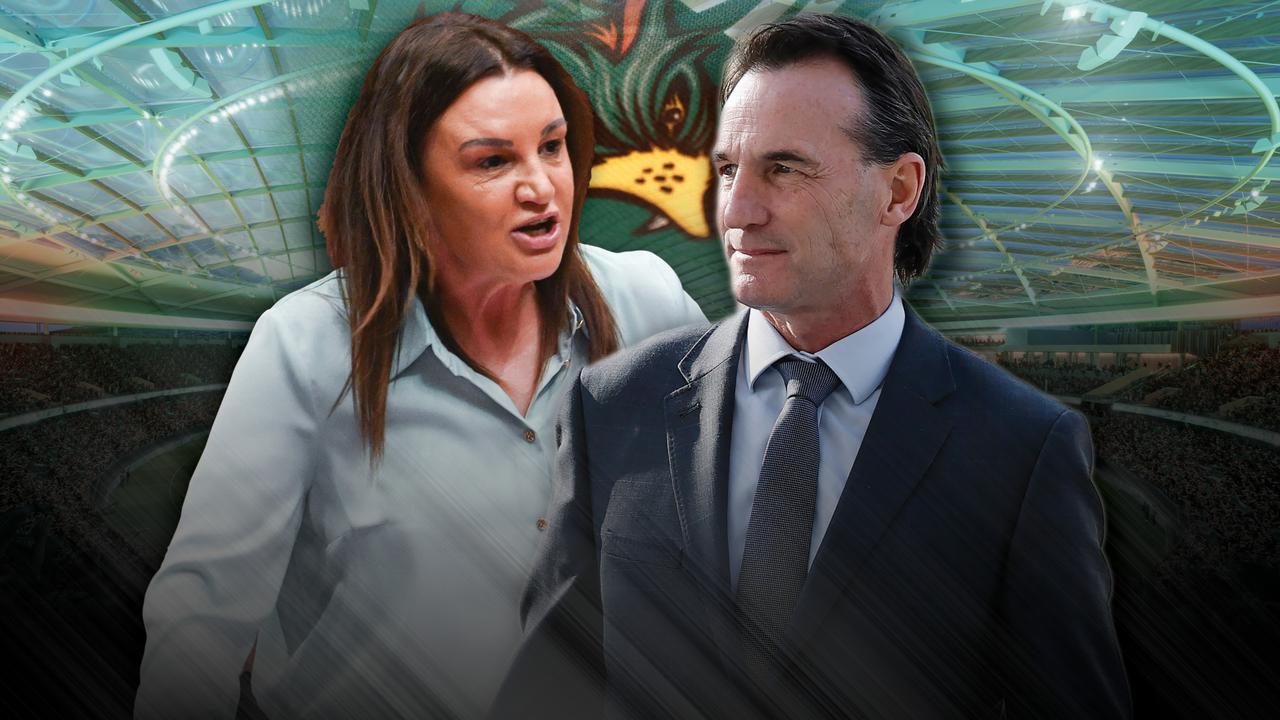AFL tribunal: Kysaiah Pickett ban stands, Matt Owies loses bid to play in elimination final
A pair of marathon tribunal hearings stretched into Wednesday morning but even a last-ditch effort from Carlton couldn’t save Matt Owies’ finals hopes. JOSH BARNES has the details.
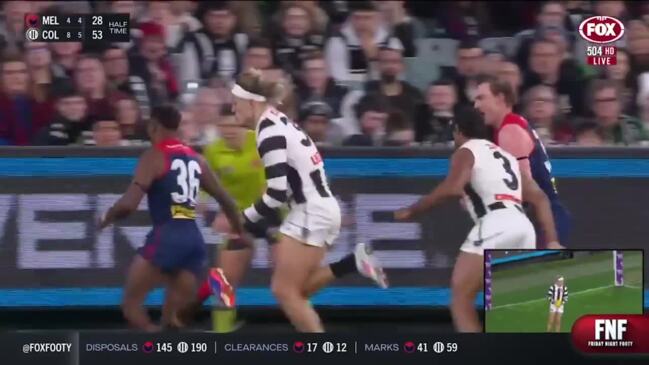
AFL
Don't miss out on the headlines from AFL. Followed categories will be added to My News.
Carlton’s tribunal hot streak is over and forward Matt Owies will not play in an elimination final against Brisbane after failing to overturn his one-game ban for a dangerous tackle.
Carlton took Owies’ suspension for a tackle on St Kilda forward Jack Higgins to a late-night hearing that ended on Wednesday morning.
The tribunal upheld the ban, rubbing Owies out for the Lions final, failing to be swayed by evidence from Owies that he did not drive Higgins into the turf.
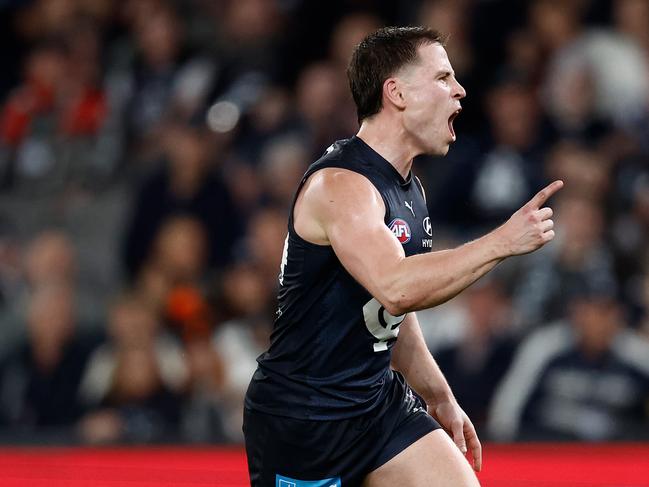
After the AFL upheld the charge, Carlton lawyer Peter O’Farrell made one last-ditch bid to reduce the sentence and free Owies, pleading to AFL Tribunal chair Jeff Gleeson.
O’Farrell produced character witnesses at 12.09am on Wednesday, listing off a series of names and off-field work Owies has done and asked for the penalty to be reduced to a fine.
The late bid forced the tribunal – featuring Gleeson, Jason Johnson and Scott Stevens – to deliberate again at 12.19am.
But they soon returned to maintain the ban.
“We are not satisfied that exceptional and compelling circumstances exist here,” Gleeson said.
Owies played in all 23 of Carlton’s home-and-away games, kicking 33 goals, ranked third at the club behind Charlie Curnow and Harry McKay.
O’Farrell argued the tackle was not reportable as it was not rough conduct.
He also argued that the impact was low and not medium, which would result in a fine.
Acting for the AFL, Nick Pane argued that Owies used his right shoulder to “drive” Higgins into the turf.
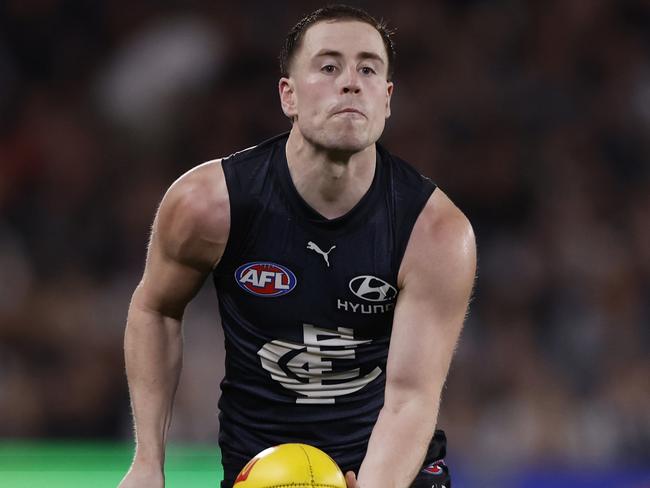
O’Farrell has been a valuable member of Carlton’s team in recent years, as he was the man that overturned a ban on Patrick Cripps in 2022, keeping the captain eligible to later win the Brownlow Medal.
He also helped reduce a ban on Jack Martin in last year’s finals series, along with four other tribunal victories.
Owies gave evidence in the hearing, refusing to state he pinned Higgins’ arm and instead conceded that he had “control” of the Saint’s arms.
“I have control of his arms but I am losing my grip,” he said, as he viewed footage bringing Higgins to ground.
Tribunal chair Gleeson said Owies’ evidence was not “a convincing explanation” and he did drive Higgins into the turf.
The tribunal found he didn’t release the arms of the St Kilda goalkicker when he could have.
The Blues ran through several examples of tackles in recent years that did not result in suspensions, including Bulldog Liam Jones’ tackle from Sunday that resulted in a fine and Cat Patrick Dangerfield’s tackle on Blue Sam Walsh that was cleared by the tribunal.
Gleeson said the Dangerfield incident was not similar enough to work as a valid argument.
O’Farrell later zoomed in on footage of the Higgins tackle and argued his arms broke his fall at the very last moments of the incident.
“The extent of the force was minimal from Owies,” O’Farrell argued.
The Owies hearing did not begin until 9.55pm, due to the marathon case of Kysaiah Pickett, which started at 6.30pm.
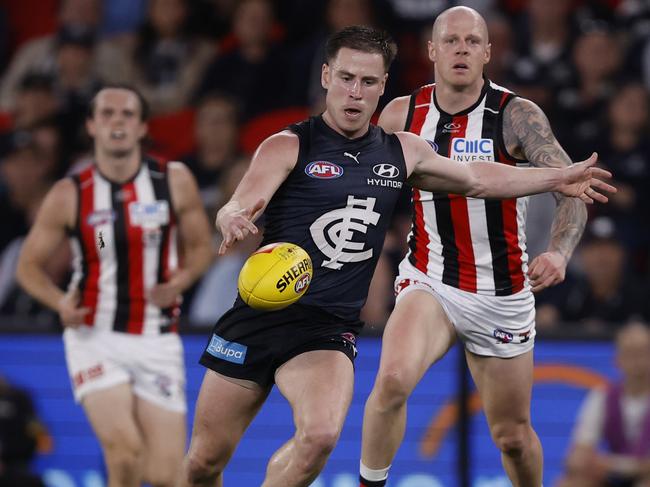
In what is in uncommon appearance in modern tribunals held over Zoom, Owies watched the full hearing in a suit.
Higgins received treatment for the tackle but played out the game, breaking Carlton hearts with the matchwinning goal.
The AFL presented evidence that he left the field for 10 minutes to be assessed on the bench but the Blues attempted to argue Higgins only spent four minutes off the field.
DEMON’S BAN STANDS AFTER MARATHON HEARING
Melbourne star Kysaiah Pickett will again miss the start of a season after the Demons were unable to overturn a three-match ban at the tribunal.
Pickett was handed the suspension by the MRO for a high bump on Darcy Moore in the round 24 clash against Collingwood, after the Pies skipper dropped his knees to contest a loose ball in the second quarter.
Moore suffered a concussion in the incident and was subbed out of the game, which Collingwood won.
The small forward will not be available until the fourth game of the AFL season after the tribunal upheld the ban.
He has now been suspended on five separate occasions in his 106-game career, including Melbourne’s first game of 2024.
Melbourne footy boss Alan Richardson said on Tuesday night that an appeal was not out of the question.
“We will assess our options from here,” he said.
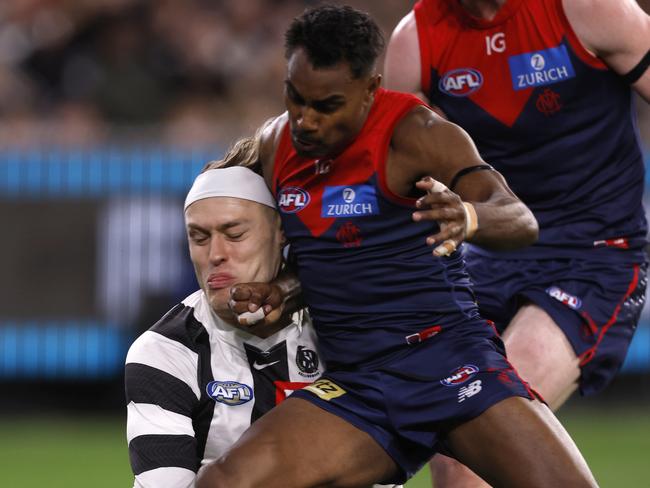
AFL Tribunal chair Jeff Gleeson KC said that the tribunal did not believe he was contesting the ball and it was “unreasonable” for him to bump given Moore could have lowered his body and been in danger.
The AFL, represented by Sally Flynn, confirmed the league was seeking the three-week ban to stand.
Flynn said Pickett was not contesting the ball at the point of the bump, having elected to run past the ball and elect to bump Moore.
She also confirmed Pickett had other reasonable alternatives to bump, such as gathering possession or tackle Moore after he took possession.
The case hinged on whether Moore going to his knees to collect the ball happened too quickly for Pickett to react.
Melbourne’s legal counsel Adrian Anderson said the way Moore went to ground was unreasonable to expect, with just 0.2 seconds of time for Pickett to react to the sudden change of height.
The Demons argument was that if Moore stayed upright, Pickett’s bump would have been fair and the Melbourne forward had “stayed low”.
Anderson said Moore’s motion of going to ground was dangerous because the motion could’ve caused contact below the knees of Pickett, which would give away a free kick.
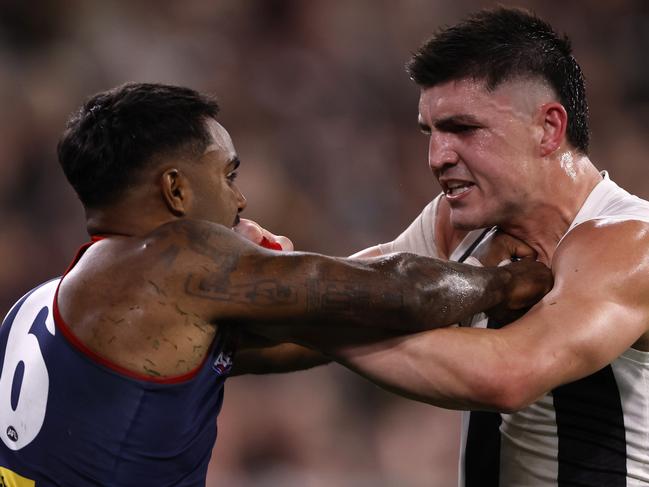
Flynn countered that Moore’s sliding to the footy was “legitimately contesting the ball”.
The hearing involved a one hour legalese discussion on the specificity of the rough conduct charges, in which Anderson began referring to recent tribunal hearings involving jockey Jamie Kah.
Pickett said in a statement provided to the tribunal that his intention was to protect space from Moore and ultimately win the ball, with a shoulder-to-shoulder bump executed while tracking the football.
But Pickett said he did not expect the Magpies defender to go to ground so quickly, with no time to adjust the level of the bump.
“It’s fundamental to Mr Pickett’s case tonight that Moore was upright when he chose to bump,” Anderson told the tribunal.
Anderson said if Moore had approached the contest in a different manner he would not have been in a position to be bumped in the head by Pickett.
Gleeson said that the Demon was “unreasonable to bump when running at speed” and should have known Moore could have been in danger.
He also said Pickett was as low as he possibly could be to execute the bump, and that it was lawful to bump with the ball within five metres of the players.
But Flynn said the contact to Moore’s head was not outside of Pickett’s control, with Moore’s head likely to be over the ball in the gathering motion if he chose to keep his feet.
Anderson said the action was not likely to cause injury at the time Pickett chose to bump, however Moore’s sudden change of position contributed to the contact.



